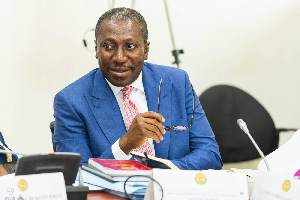Sprezzatura is a strange term, but the word ‘rhetoric’ is even stranger. We accuse politicians of using rhetoric to dodge questions. Often, we think they dabble in rhetoric and spin to bamboozle or talk above our heads. That is rhetoric alright. It appears rhetorical when we suspect that a lot of effort may have gone into what somebody said, like the speech the CEO gave at the dinner party. Well, but did you know that a mother convincing her four year old to drink up the soup after eating the meat, is also using rhetoric? They are all trying to persuade or influence another in words. Yeah, that is what rhetoric is all about. So you see, you are a fine rhetorician, especially if you have ever lied.
Now, you hear a chap tell a story with so much spontaneity and originality, that you feel transported on the wings of mere words to a destination where you also appear to have lived the experience he is describing (enargia). You don’t feel that he is reciting stuff because the ideas seem to spring from his thoughts and memory in a way that is as natural as the way leaves come to a tree. In the end, you can’t help but say ‘Awww’, or ‘wow’, he sure nailed it. That is sprezzatura.
Well, don’t be quick to own up as an expert in sprezzatura, because it is a gift only a few of us have. So, you know this chap called Kwaku Sakyi-Addo. When you hear him speak, how do you feel? He uses the same everyday words we all borrow from the dictionary, yet you felt like clapping anytime you heard or watched him introduce his guests on his interview shows. He would sum up their lives and professional worth in carefully selected diction, such that each word or phrase seemed to represent a significant part of the person. You felt you could not easily replicate his style. You could skirt around it, but he owns his style. There, we are not talking rhetoric in the way we know it; we are thinking sprezzatura, which incidentally, is part of rhetoric. It’s all in the memory, folks. PM David Cameron’s memory never fails.
You may know this other political chap who also has the sprezzatura talent. Ever heard the NPP’s Boakye Agyarko speak? Was he reading from a script or he had rehearsed what appeared to be an of the cuff extempore rendition? He is flawless, careful, almost methodical and brilliantly dazzling. You know this expression: dazzle them with brilliance or baffle them with BullShh. Well, you liked Agyarko because he sounded true and spot-on. Besides these two, there may be a few others who are good with the spoken word. Tony Aidoo is one but he is too bombastic, so he comes across as too much of a rhetorician. My former roommate, Egbert Isaac Faibille, is quite good with the word. Last week’s personality profile on Joy was a foil to Kwaku One on One. The thing with interviews is that you are good when your interviewee is very good. You are in a conversation, so you may want to ditch your interview guide altogether and chat on. Nana Ansah Kwaw wasn’t as star-struck as Piers Morgan was when Piers hosted Oprah Winfrey on his debut interview show on CNN. Well, maybe it’s because we don’t actually have stars in our part of the Jordan. Some good questions elicited some great responses: Sakyi-Addo doesn’t do regrets. “It’s gone. What are you going to do with it? Every interview was well considered.” Looking back, there is no interview he shouldn’t have done. There is no sermon that shouldn’t have been preached, my pastor once said. I mean, it is a sermon. So is journalism; it is news.
How does Sakyi-Addo see today’s journalism? “It’s different”, Kwaku says. Non-committal. Have we had Kwaku’s quality since he left the scene? And this is not a rhetorical question. Are we able to compare the present GJA Journalist of the year with Kwaku? If we can’t do any comparison and tilt the scales in Azure’s favour, then the practice today is just as different as our 2012 elections. I almost wanted to push the words ‘quality’ and ‘standards’ into Kwaku’s mouth, but he conveniently avoided coming across as an umpire. But he gave us a clue, which was also good advice to all journalists: every time you put your by-line to a published work, you are submitting your CV for a job application. How many of our professionals should keep their jobs?
Today, we have professionals who actually decided on journalism as a career and went to school to learn the theories of the trade. Kwaku tells us he stumbled onto journalism. That is just the problem with the profession: the best and the brightest got into it by accident. My grandfather in the trade, Britain’s phenomenal Andrew Marr, gave journalism a try at the Scotsman after he failed to pass an interview for a job in a second-hand bookstore. Komla Dumor ditched the stethoscope for the microphone. Yet, one thing is common in most of these cases: it is a profession for those who can say or write it better than the average person. Maybe instead of saying they stumbled onto it, journalists should say they received their calling after sinning with other interests. Like men of God, they heard the call and made their way to the penpit, where they repented of their sins with engineering.
Do we miss Kwaku Sakyi-Addo? He left when the applause was loudest. Would it have gotten any louder? Nana Ansah Kwaw may be right when he says Kwaku may have set the bar too high. Well, Kwaku thinks we should raise it even higher (rhetoric). He is right. A broken clock may be right twice a day, but in between time, it is broken.
Kwesi Tawiah-Benjamin, Ottawa, Canada
bigfrontiers@gmail.com
Opinions of Monday, 10 June 2013
Columnist: Tawiah-Benjamin, Kwesi
Sprezzatura: The Rhetoric of Kwaku Sakyi-Addo
Entertainment













